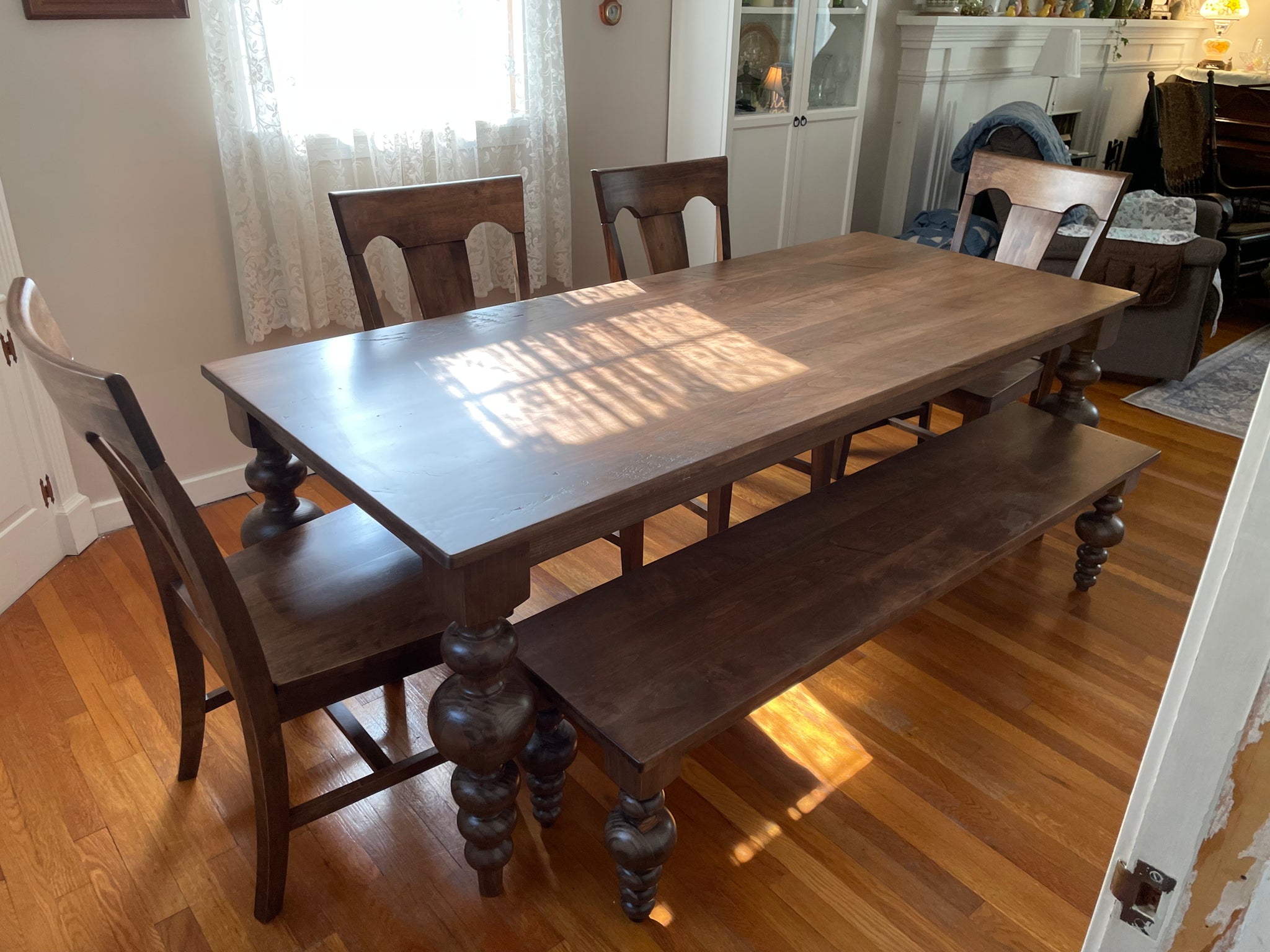How to Maintain and Care for Your Dining Room Table Legs
How to Maintain and Care for Your Dining Room Table Legs
Blog Article
Professional Tips for Putting Up Dining Space Table Legs for Optimum Security
When it concerns installing dining-room table legs, achieving optimum security is critical for both capability and visual appeals. The process starts with picking the appropriate products and equipment, complied with by thorough positioning and factor to consider of weight circulation. Each action plays an essential function in ensuring that the completed item holds up against daily use without compromising safety or style honesty. Recognizing the nuances of these elements can considerably affect the overall end result. What certain techniques can boost stability also better?
Pick the Right Legs
When picking the appropriate legs for your dining-room table, it is vital to think about both functionality and looks. The legs you select will considerably influence the general style and security of the table. Initially, examine the table's intended usage; if you expect frequent gatherings, tougher legs, such as those made from strong timber or steel, may be much more appropriate, as they provide enhanced resilience and support.
Standard eating tables usually vary from 28 to 30 inches in height, so ensure the legs straighten with this standard for comfort. Conical legs can include a modern touch, while transformed legs could convey a much more classic visual.

Select Appropriate Equipment
How can the ideal hardware boost the security and longevity of your dining-room table? The selection of appropriate equipment is essential to guaranteeing that the legs of your table are securely connected and able to endure regular usage. Top quality screws, bolts, and braces give the required stamina to support the weight of the table, in addition to any kind of additional loads put upon it during dishes or celebrations.
When choosing screws, choose those made from long lasting products such as stainless-steel or brass, which resist rust and maintain integrity with time. The length of the screws is equally essential; they need to penetrate deeply into the table's framework without jeopardizing honesty. For bolted links, consider making use of lock washers to avoid loosening up as a result of vibration or movement.
Furthermore, using corner brackets can include added assistance, particularly for bigger tables or those with heavier tops. These brackets disperse weight evenly and assist maintain the table's form. Guaranteeing that the equipment you choose is suitable for the specific products of your table will certainly better enhance its total security and long life, permitting you to appreciate your eating experience for many years to come.
Ensure Correct Alignment
Proper placement of dining area table legs is important for both aesthetic allure and useful security. To accomplish optimal placement, begin by gauging the distance from the table's edges to the leg add-on factors.
Use a degree throughout installation to validate that each leg is vertical to the table top. It is a good idea to note the desired leg settings on the underside of the table with a pencil or concealing tape prior to protecting them.
Additionally, verify the positioning after the first screws are tightened, as changes might be needed before fully securing the hardware. By prioritizing correct positioning, you not just enhance the table's general design yet additionally make certain that it continues to be useful and stable for years to come.

Consider Weight Distribution
After ensuring proper positioning of the dining-room table legs, it is necessary to consider weight distribution to boost security and performance. dining room table legs. Proper weight distribution is important in avoiding ensuring and wobbling that the table can sustain its intended tons without risk of tipping or breaking down
When placing the legs, ensure they are positioned at equal ranges from the center of the table to equally disperse the weight across the structure. Consider the weight of the table top and any things that will regularly hinge on it, such as ornamental items or tabletop home appliances. Tables with much heavier surface areas need to ideally have legs located closer to the corners, as this takes full advantage of the base of support and reduces the threat of instability.
Furthermore, if the table is meant for use in a high-traffic location, consider making use of much heavier products for the legs or including here stabilizing aspects, such as cross-bracing or a lower rack - dining room table legs. These modifications can assist preserve equilibrium and avoid changing during use. Ultimately, a well-considered weight circulation method will substantially improve the table's general performance, guaranteeing it remains a attractive and functional centerpiece for your eating space
Test Security Prior To Usage
Evaluating the security of the dining room table prior to usage is an essential step that needs to not be ignored. Making certain that the table is secure and stable can protect against accidents and prolong the life-span of the furniture. Begin by applying gentle pressure to numerous points on the table surface. Push down on the center and afterwards along the sides, observing any type of wobbling or moving. If the table reveals instability, determine the legs or joints that may require adjustment.
Following, check that all screws and bolts are tightened up properly. Loosened links can result in instability and prospective damage gradually. If required, make use of timber glue on joints to check these guys out improve stability, guaranteeing to enable adequate drying time.

Conclusion
Finally, the installation of eating area table legs requires cautious consideration of materials, weight, placement, and equipment distribution to achieve maximum security. By choosing tough legs and top quality bolts, guaranteeing accurate alignment, and distributing weight uniformly, the structural stability of the table can be dramatically enhanced. Carrying out a stability examination before normal use better makes certain that the table will hold up against everyday pressures, consequently giving a risk-free and reliable eating experience.
When it comes to setting up eating space table legs, accomplishing maximum security is extremely important for both performance and aesthetic appeals. The legs you pick will dramatically influence the overall style and security of the table (dining room table legs). Basic eating tables generally range from 28 to 30 inches in elevation, so guarantee the legs line up with this standard for convenience.Correct positioning of eating room table legs is necessary for both aesthetic appeal and useful security.In verdict, the setup of eating room table legs needs mindful consideration of products, hardware, weight, and positioning distribution to achieve maximum stability
Report this page